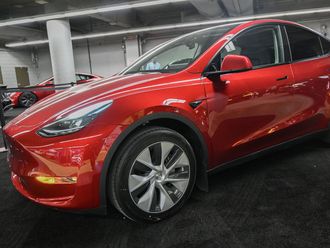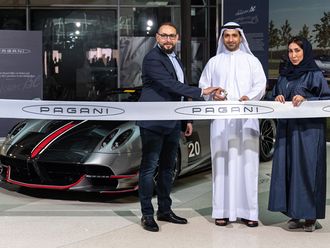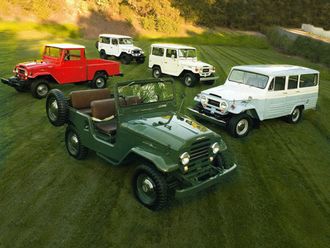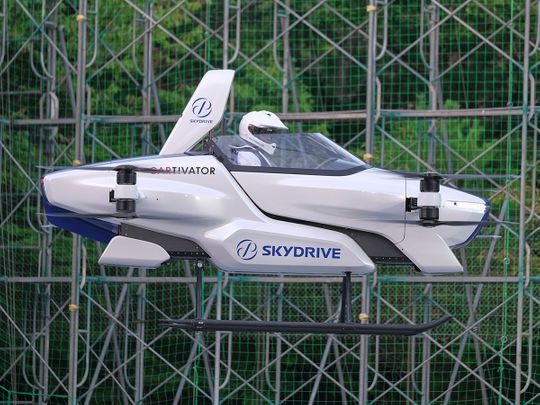
In the 1880s, the first automobile was developed, and about two decades later, the Wright brothers in North Carolina invented the first successful airplane. Now, the world is closer to combining those two concepts as a Japanese tech company said it completed a manned test flight of a "flying car."
The company, SkyDrive, said in a news release over the weekend that it had completed a flight test using "the world's first manned testing machine," its SD-03 model, an electrical vertical takeoff and landing (eVTOL) vehicle. The flight time was four minutes, the company said.
The aircraft has one seat and operates with eight motors and two propellers on each corner. It lifted about 10 feet into the air and was operated by a pilot, the company said.
Tomohiro Fukuzawa, SkyDrive's chief executive, said Saturday that five years ago there were various prototypes of flying cars, usually with fixed wings. SkyDrive's product, he said, was one of the most compact in size and was lighter compared with other designs.
SkyDrive was started in 2012 by members of a volunteer organization called Cartivator, and the company began developing a "flying car" in 2014, according to its website.
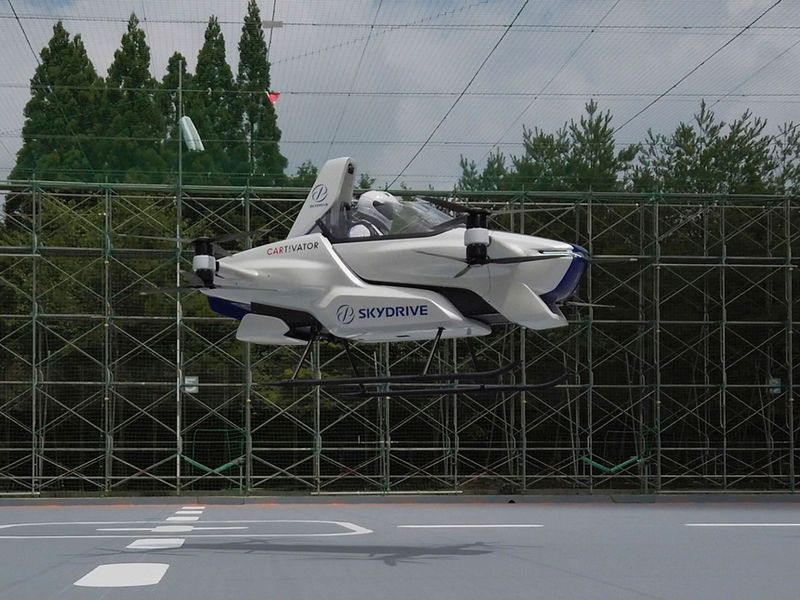
This year, SkyDrive received funding from the Development Bank of Japan and other investors, the company said.
Several companies are developing similar technology, including Boeing and Airbus, as well as automakers Toyota and Porsche. In January, Hyundai and Uber announced they were collaborating on an all-electric air taxi.
Analysts with Morgan Stanley have said they expect urban air taxis to be common by 2040, with the global market projected to be $1.4 trillion to $2.9 trillion by then.
Safety is one of two challenges preventing the technology from becoming widely used, said Derya Aksaray, an assistant professor of aerospace engineering and mechanics at the University of Minnesota. Safe autonomous technology for eVTOL aircrafts is still being developed, Aksaray said.
The other challenge is design: The vehicles should be powerful enough to carry any necessary weight, yet quiet enough to fly at undetermined low altitudes, she said.






